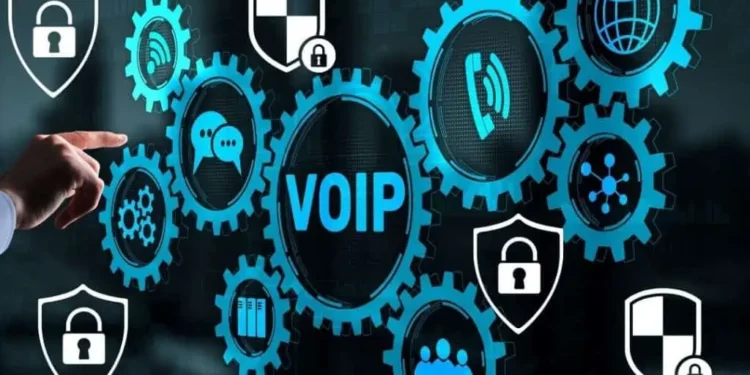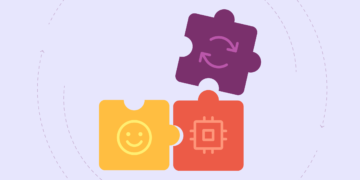VoIP systems transfer a large amount of data, making them a lucrative target for cybercriminals. It would help if you had a provider that offers end-to-end encryption to ensure the confidentiality of your call data.
Educating your employees on cyber threats and training them to select secure custom usernames and passwords, use WiFi encryption, avoid unsecured networks, and check their call logs regularly is essential. This way, they can protect your business from any potential attack and minimize the damage caused.
Encryption
VoIP systems transfer a wealth of data, making them a lucrative target for cybercriminals. By implementing encryption, your business can mitigate many common threats.
Encryption changes voice data packets into unreadable clutter while in transit, preventing hackers from deciphering your calls if intercepted. It can also prevent unauthorized users from using VoIP services and tamper with call information relayed in conversations.
Malware and viruses are harmful programs that cause signal breakdown for VoIP calls by consuming network bandwidth and corrupting data transmitted across your network. You can protect your VoIP system from malware and viruses by implementing hardware firewalls, enabling WPA2 on your business WiFi networks, and encouraging staff to use secure custom passwords for their account.
Cybercriminals can tamper with VoIP calls by changing the destination of the ring or even routing it to international premium rate numbers, costing your business money and damaging customer trust. Ensure your providers encrypt all call and data information to protect VoIP systems.
DDoS Attacks
In a recent survey by JP Morgan, cyber threats such as payment fraud and data breaches were ranked among the most pressing concerns for business leaders. However, when we talk VoIP phone systems, these bring unique security challenges impacting business workflow, including call interception, phishing, toll fraud, and denial-of-service attacks.
Packet sniffing is when nefarious actors intercept voice packets during calls and use them to eavesdrop on conversations. This is particularly dangerous if employees discuss sensitive information with one another, as it can lead to a massive data breach.
To prevent these types of cyber threats, businesses should follow password best practices, educate their teams on how to spot phishing and other scams, and conduct frequent network scans. Additionally, all hardware should be secured with VPNs, and all data should be end-to-end encrypted. Lastly, employees should avoid using public WiFi on work devices. These networks are often a breeding ground for viruses and malware that can cause signal breakdowns, resulting in poor call quality and security issues.
Malware
While traditional landlines turn your voice data into electrical signals that travel over a national network, VoIP technology sends this data through your home internet connection. While this may save on long-distance fees, it comes with some vulnerabilities.
Hackers can intercept VoIP conversations with the right tools. This type of eavesdropping can steal usernames, passwords, and other sensitive data from calls. To guard against this, choose a reliable VPN option and encourage employees to use strong and varied passwords.
Cyber threats can also affect VoIP systems through DDoS attacks, packet sniffing, and phreaking. To protect against these, ensure all data is end-to-end encrypted, and monitor your network consistently for suspicious login attempts and devices.
Phishing
Malware and viruses consume network bandwidth, creating signal congestion and call quality issues. Still, they also leave security gaps that future hackers can exploit to tamper with VoIP calls or steal information relayed during them. To protect against these threats, encrypt all SIP trunks, change passwords frequently, buy ransomware protection software, and avoid saving billing information in your system.
Lastly, ensure you and your team use two-factor authentication when logging in to VoIP phones and your web dashboard. Also, consider disabling international calling and enabling geo-fencing on all users to safeguard your business against hackers. Working with a VoIP provider that offers stringent security protocols and performs frequent security checks is essential. They should encrypt all data packets in your network, provide a secure VPN, and show detailed call log reviews for suspicious activity. They should also have a dedicated router to limit physical access to networking equipment. Read more interesting articles on Tech new master



















